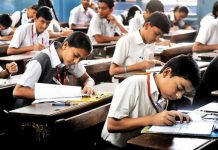
The NEET-UG exam is one of the most significant examinations for medical aspirants in India. Each year, millions of students appear for this highly competitive test, aiming to secure a place in prestigious medical colleges across the country. However, this year, the NEET-UG exam has been marred by controversy due to a disputed Physics question that could potentially affect the scores of over 4 lakh students.
The Disputed Physics Question
The controversy centers around a particular question in the Physics section of the NEET-UG exam. This question, which was meant to test the students’ understanding of complex concepts, was found to have errors that made it impossible to answer correctly. The issue came to light when numerous students and educators pointed out discrepancies in the question during the post-exam discussions.
IIT Delhi’s Involvement
Given the gravity of the situation, the NEET-UG authorities sought the expertise of IIT Delhi to review the disputed question. IIT Delhi was chosen due to its renowned faculty and rigorous academic standards. The experts at IIT Delhi undertook a detailed analysis of the question to determine its validity.
Findings of IIT Delhi Experts
After a thorough review, the experts at IIT Delhi submitted a comprehensive report. The report confirmed that the disputed Physics question was flawed and could not be solved with the given information. The key points of the report highlighted the exact nature of the errors and provided a clear explanation of why the question was invalid.
Impact on Students
The findings from IIT Delhi’s report have significant implications for the students who appeared for the NEET-UG exam. Over 4 lakh students are likely to lose marks due to the erroneous question. The NEET-UG authorities have announced that they will be adjusting the marks of the affected students to ensure fairness in the evaluation process.
Student Reactions
The news of the disputed question and the subsequent report from IIT Delhi have elicited strong reactions from students. Many students expressed frustration and anxiety over the potential impact on their scores and future prospects. Social media platforms have been abuzz with discussions, with many students sharing their experiences and concerns.
Response from Authorities
In response to the issue, NEET-UG authorities have issued statements acknowledging the problem and outlining the steps they are taking to address it. They have assured students that their scores will be adjusted fairly and that no one will be disadvantaged due to the error. Additionally, the authorities are reviewing their processes to prevent similar issues in the future.
Legal and Ethical Considerations
The controversy has also raised several legal and ethical questions. Some parents and students are considering legal action against the NEET-UG authorities for the stress and uncertainty caused by the disputed question. Ethically, the incident has highlighted the importance of rigorous question-setting and validation processes to ensure the integrity of the examination.
Previous Instances of Exam Discrepancies
This is not the first time an examination has faced such issues. There have been previous instances where errors in question papers have led to widespread student discontent and legal challenges. Learning from these past incidents is crucial to improving the examination system and ensuring that such mistakes are not repeated.
The Importance of Fair Assessment
Fair assessment is the cornerstone of any credible examination system. The accuracy of exam questions is paramount to ensuring that students are evaluated based on their true capabilities. Any discrepancies in the question paper can undermine the validity of the exam and erode trust in the education system.
Advice for Affected Students
For the students affected by this issue, it is important to stay informed and proactive. They should keep an eye on official announcements from NEET-UG authorities and seek guidance from their teachers and mentors. Additionally, various student support services are available to help them navigate this challenging situation.
Future Precautions
To prevent similar issues in the future, examination boards need to implement stricter validation processes for question papers. This includes multiple rounds of review by subject matter experts and thorough testing of questions before they are included in the exam. By adopting these measures, the integrity of the examination process can be upheld.
Expert Opinions
Educational experts have weighed in on the controversy, emphasizing the need for a robust question-setting process. They believe that while errors can occur, the key is to have mechanisms in place to quickly identify and rectify them. Experts also predict that this incident will lead to more stringent checks and balances in future exams.
Conclusion
The disputed Physics question in the NEET-UG exam has highlighted critical issues in the examination process. With over 4 lakh students affected, it underscores the importance of accuracy and fairness in assessments. As NEET-UG authorities work to address the issue and prevent future occurrences, it is a reminder of the need for continuous improvement in our education system.
FAQs
What was the disputed Physics question in the NEET-UG exam?
The disputed question was found to have errors that made it impossible to answer correctly, as confirmed by a report from IIT Delhi experts.
How will the marks be adjusted for affected students?
The NEET-UG authorities have announced that they will adjust the marks of the affected students to ensure fairness in the evaluation process.
What has been the response from NEET-UG authorities?
NEET-UG authorities have acknowledged the issue and outlined steps to address it, including adjusting marks and reviewing their processes to prevent future errors.
Are there any legal actions being taken?
Some parents and students are considering legal action against the NEET-UG authorities for the stress and uncertainty caused by the disputed question.
What measures are being put in place to prevent future discrepancies?
Examination boards are expected to implement stricter validation processes for question papers, including multiple rounds of review and thorough testing of questions.



































zTqXLHERPJj